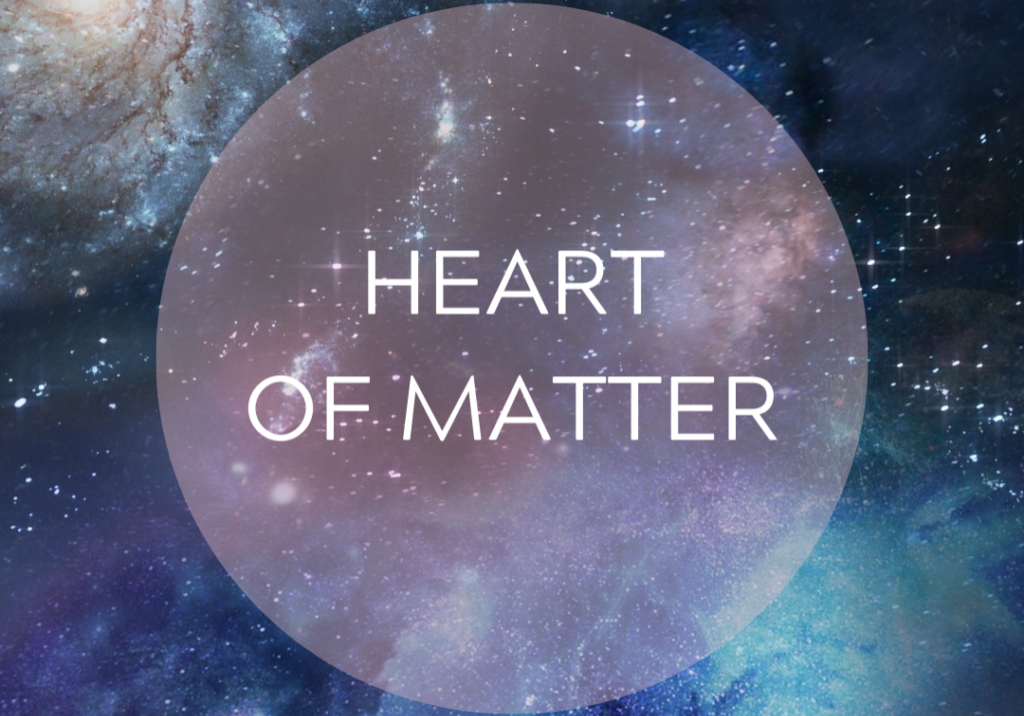The Heart of Matter: The Cultural Winds of Change
Tuesday, August 9th
“…the most unchristian position we can assume is to block the new creation from taking place. And that is exactly where the institutional church finds itself today, internally divided and defending itself against the cultural winds of change.”
Ilia Delio, Hours of the Universe
+
“…la postura menos cristiana que podríamos asumir es impedir que la nueva creación se lleve a cabo. Y ahí es exactamente donde la Iglesia institucional se encuentra hoy en día, dividida internamente y buscando solo el modo de defenderse de los vientos culturales de cambio.”
Ilia Delio, Hours of the Universe
What is being moved? What is being asked?
Read more in Ilia’s award-winning book, Hours of the Universe.
 View print-friendly version
View print-friendly version
9 Comments
Related Posts

Heart of Matter: “The Divine Entanglement”
“While panentheism is a helpful concept, the language of pantheism and panentheism is based on concepts of ‘being’ and ‘nature’ that can lead to misguided images of distinct beings in…
Sad but true. The institutional church may originally have provided a degree of protection and certainty for the people around some of the bigger questions. At some point however it appears to have been more important to preserve the present position of the church as controller and arbitrator of the truth than to provide support to the people. In that sense the church becomes the enemy of the people and is now well beyond it’s used by date. Thankfully we now understand the presence of God within ourselves, each other and throughout the whole of the created order. This means that we can approach the presence of God and knowledge of the world directly. There is no need for a third-party intervention any more.
In my lifetime, the Church has always been a world unto itself, passing judgement on life outside it’s walls. Inside that mental prison, many are simply exhausted by it. I have said sarcastically, but now more realistically, “These guys will go down with the ship. They don’t believe in icebergs.” The defensiveness of its leaders has masked a message which, in my experience, Teilhard can renew.
Sad but true. I guess there was a time when the institutional church provided a safe reference point for people who were seeking knowledge. This service became corrupted by the clerics’ need to stay in control and things went belly-up from that point onwards. The disenfranchisement of non-clergy people has been deeply felt. Thankfully we are starting to experience a freedom in opening up to the presence of God throughout the natural world of which we are a part. We don’t need a monitor or a mediator or an interpreter any more. We can know God within us and around us and when we are open to this we have no trouble experiencing how personal to us is God’s presence. Imagine writing that up in a catechism!
I joined a Church almost 40 years ago inspired by the Paulian God of love and the promise of becoming a new creation. To say I am disappointed where the Institutional Church has gone in that time would be a considerable understatement. In spite of the disappointments I still have hope that Francis might lead the Church from the wilderness.
Calling for unity.
Like creativity and all artistic expression, spirituality is more flow than fixed. Therefore, it doesn’t lend itself to being institutionalized. Attempting to do so is like trying to bottle love, trap smoke in a net, or harness the mighty waves of the ocean in chains. It’s unwise to look for it in institutional form, and foolish to expect that its essence will ever come from there. Like the air we breathe or the rain that falls, Spirit is common property, so no one owns it. It’s everywhere, innermost and outermost, said Jesus, “within and all around you.” As such, spiritual consciousness is not a theology of place, but of space (literal and figurative) confirmed by the findings of quantum physics. A song does not reside in song books or sheet music .Rather, it’s only memorialized there in writing, as gravestones memorialize lives once lived. Like music, spirituality doesn’t reside in a creed, a religion, a cleric, or a building, only in a soul reverberating with same. As for institutional religion? When the horse is dead, it’s time to dismount.
I live part time with my mother who is 101 and I see in her this rigidity and an unwillingness to accept that evolution is happening despite her longing for the 1950’s. It is unchristian because there is no celebration or wonder in this position only sadness that the world has left you behind.
The all too common conviction among Christians that salvation is primarily about a person getting to heaven following death and the refusal to accept that God’s saving work is happening in the world not just in the Church is preventng many people from discerning the truth of the Gospel.
Thank God for the prophets!